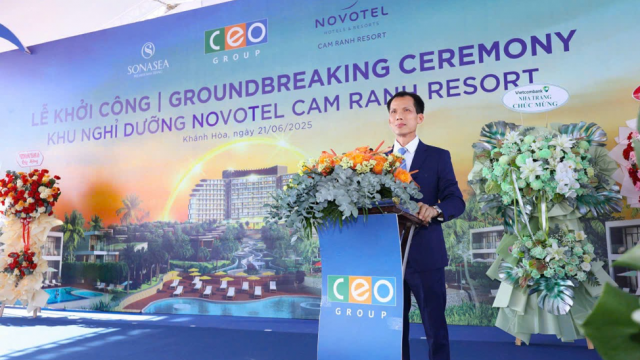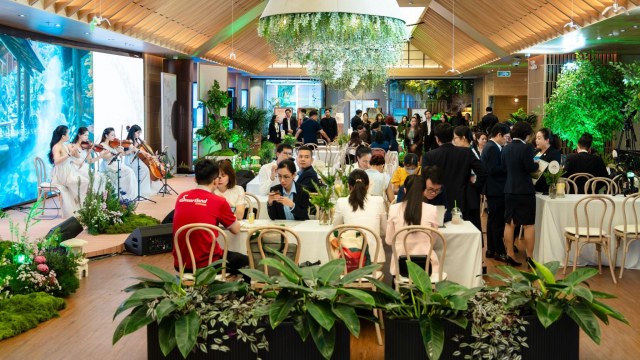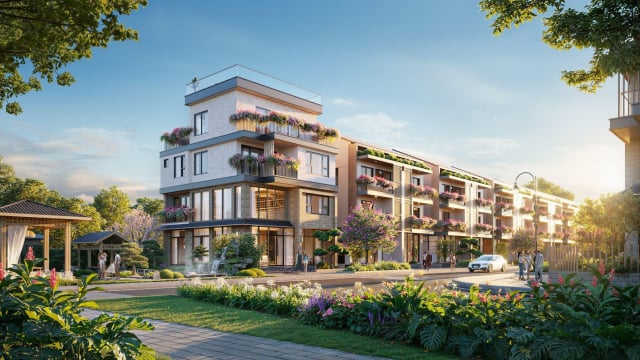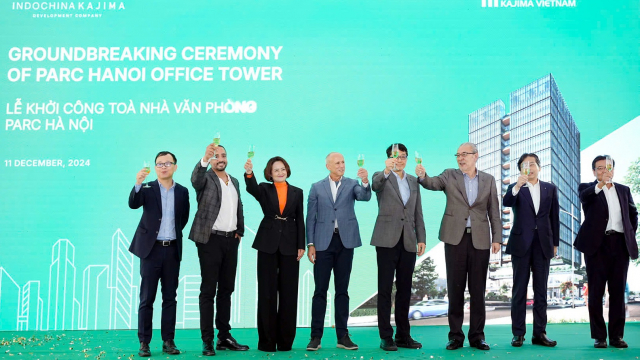Property
Integration of digital technologies will change Vietnam hospitality outlook
The trend of applying mobile application for guests personalisation and online check in/check out is a factor that will soon take over the hotel industry and change Vietnam's hotel market, according to global accounting and consulting firm Grant Thornton.

The recent hotel survey of Grant Thornton shows that over the last three consecutive years, there was an increasing trend of domestic guests staying at upscale hotels, however, the trend was adjusted in 2017 when the growth in international guests which reached 29 per cent surpassed the growth of domestic guests at 18 per cent only.
As the result, the percentage of International travelers staying at four or five-star hotels increased to almost 81 per cent last year.
Free independent traveler/leisure travelers and tour groups accounted for the highest proportions of guests staying at upscale hotels, and they accounted for more than 60 per cent of total guests. The third biggest portion – the corporate/business travelers was observed with a slight increase of 0.5 per cent in 2017.
Meetings, incentives, conference, and exhibits (MICE) guests decreased slightly by 0.2 per cent. The decrease though minor, was the second year in a row which implied that Vietnam had not done much in the last few years to attract MICE tourists.
Asia was still the primary market for inbound Vietnam tourism, accounting for 76 per cent of total international arrivals, among which China, South Korea, and Japan had been the top three inbound markets for the last three years, together accounting for more than a half of total international visitors to Vietnam.
Whereas, arrivals from Western countries rose 14 per cent in 2017, with the notable case of Russia, where the number of visitors rose over 32 per cent thanks to the tour operators’ effort to expand their tour packages for Russian tourists to travel to Vietnam in winter, and increase knowledge of both tourists and travel agents about Vietnam.
The structure of room reservations last year followed the same pattern as in the previous year where tour operators/travel agencies were the major channel of reservations for four star and five-star hotels.
A small decreased was noticed with direct bookings while booking via online travel agents (OTA) and corporate increased slightly.
"Responses from four and five-star hotels proved that the importance of incorporating digital technology in their business is vital. Statistics show that 89.8 per cent of hotels consider the integration of digital technologies into the hotels’ services is a factor that will change the Vietnam hotel market," stated Grant Thornton's survey.
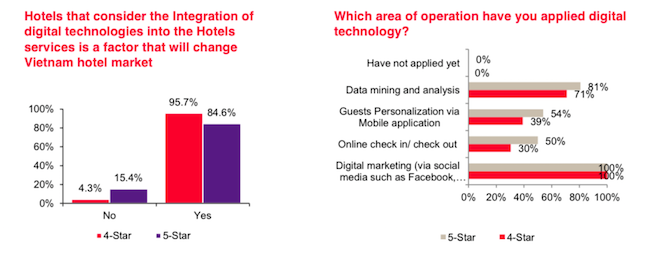
Grant Thornton also shows that while digital marketing and using of data mining and analysis have become basic, being used at almost all the four - five star hotels, the trend of applying mobile application for guests personalisation and online check in/check out is becoming more and more popular, with more than a half of participated five star hotels, and 30 - 40 per cent of the four stars. It is predicted that these digital technologies will soon take over the industry.
Besides, the average room rate last year increased by 2.8 per cent from $89.3 in 2016 to $91.8, with five-star hotels making a better recovery.
In terms of location, all regions saw an improvement in the room rate, with the Central region achieving the highest of 5.7 per cent, followed by the Northern region with 4.4 per cent. Revenue per available room showed significant increases for both star categories at 7.6 per cent for four-star hotels and 10.2 per cent for five-star hotels.
Room sales accounted for the highest portion of total revenue and showed a slight increase in the last two years. Food and beverage sales, on the contrary, saw a slight decrease compared to last year. Other operating sales remained roughly the same in the two years.
Meanwhile, the cost structure remained similar for the two years. Even though gross profit margin of each department did not show any major changes, payroll expenses were increasing for food and beverage and other operating departments. Such a trend was also observed in the rise in average payroll per employee in 2017.
Statistics of the participating hotels showed that average revenue and payroll expenses per employee increased for the second year in a row. The average revenue per employee last year increased by 6.7 per cent and average payroll expenses increased by 5.7 per cent.
Grant Thornton also said that overall, occupancy rate improved by 4.8 per cent for four-star and five per cent for five-star.
In the future, with the three-year extension to the visa scheme starting from July 2018 for visitors from five Western countries, this company forecasts that the growth rate of Western visitors can increase significantly.
It also believes that the target of 15 to 17 million international arrivals of Vietnam's Prime Minister and Minister of Culture, Sports and Tourism is within reach, with the first six months of this year, Vietnam received 7,9 million international visitors, 27 per cent compared to the same period of last year.
Vietnam Seaside Tourism Real Estate Forum 2018: Effective Governance on Investment and Business
Hai Phong industrial property powers up with new project from Indochina Kajima
The project Core5 Hai Phong from Indochina Kajima and Itochu Corporation will deliver approximately 80,000 square metres of world-class ready-built factory for lease, handover expected in the first quarter of 2027.
A decade of unprecedented apartment price surge
A decade of relentless apartment price growth has pushed the dream of homeownership further out of reach for Vietnam’s middle- and lower-income earners.
Essensia Parkway sells out within hours, marking an outstanding partnership with WorldHotels
Essensia Parkway makes significant impact in the high-end real estate market as 100 per cent of the limited collection was successfully registered within just a few hours at the launching event with the theme “Live lux-well, in a truly refined world”.
Essensia Parkway gains global prestige through WorldHotels - Phu Long collaboration
Essensia Parkway is set to mark a significant milestone as the first branded residences project in Ho Chi Minh City to be operated by WorldHotels – one of the finest portfolios of independent hotels and resorts within BWH Hotels.
Indochina Kajima breaks ground on Grade A office building in Hanoi’s emerging hub
Parc Hanoi marks Indochina Kajima's first office-for-lease project in its $1 billion investment plan in Vietnam.




















